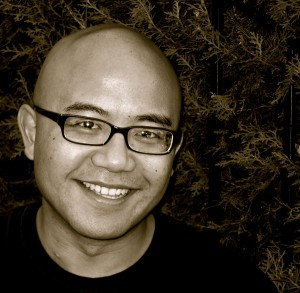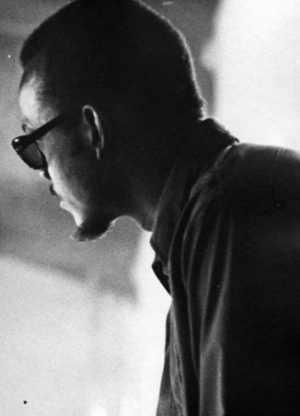On Larry Itliong Day, remember all manongs both straight and gay
On Sunday, California celebrated the very first statewide Larry Itliong Day, honoring the Filipino American farm worker labor leader on his 102nd birthday.
And what a way to start the final week of October, as Filipino American History Month winds down to a close. Add the coincidence that the Mets are in their first World Series since 2000, when one of their most productive players that year was Filipino American baseball great, Benny Agbayani, (15 HR, 60 RBI). Indeed, the October stars have aligned.
Itliong has waited longer than the Mets for this recognition. Now, his star will shine in perpetuity–a whole day, each year, every year–for taking the bold first move to walk off the job in the historic Delano Grape Strike of 1965.
Too often, that credit has gone to the Mexican American labor leader Cesar Chavez, who has been practically beatified because of the strike known as the civil rights movement in the fields. However, it was Itliong who led Chavez after convincing him that he must join the Filipinos in solidarity.
Yet Chavez is revered today with schools, parks and post offices that bear his name. In San Francisco, they renamed Army Street for Chavez.
For Itliong, there is no street. Without that, there’s not even a bus line on the Muni to bear his name.
There’s no No. 65 Itliong to deliver us to our destiny. Not even a No.7 Itliong, for his legendary nickname “Seven Fingers” that commemorates his three fingers lost in a cannery accident.
There’s nothing for the macho, cigar-chomping street fighter.
For the record, you’ll find little in public school textbooks, as Itliong has remained ignored, just like many aspects of the first wave of Filipinos seemingly condemned to live a lonely bachelor’s life.
Unless, of course, they preferred it. The bachelor life, that is.the confirmed, closeted, Filipino life.
Gay themes in ‘Monstress,’ ‘Remember the I-Hotel’
The subject comes to mind as I witnessed what I consider a theatrical breakthrough: “Remember the I-Hotel,” based on a Lysley Tenorio short story adapted for stage by the Japanese American playwright Philip Kan Gotanda.
Presented by the American Conservatory Theater, the regional theater power in San Francisco, the play is packaged as “Monstress,” the title of Tenorio’s short story collection. Sean San Jose adapted the title for the stage in another one-act.
Together, the two plays are a two-headed tour-de-force of emotional history. But it is “Remember the I-Hotel” that lingered for me. (“Monstress” is at the ACT/Strand Theater, now through November 22 in San Francisco.)
Don’t worry. It’s not like a Ken Burns documentary. You won’t see the former San Francisco Sheriff Richard Hongisto on horseback evicting tenants, or be subjected to some political screed.
No, “Remember the I-Hotel” is a simple, yet complicated love story involving two Filipino Americans and a white woman. Althea’s the hypotenuse in a very irregular triangle involving Nando and Vicente, a love story few Filipinos have shared, or history has told.
At least not if you’re a good traditional Filipino Catholic.
As I watched it, I had no reason to be stunned. I grew up in the Mission and saw the Castro change. Bought film from Harvey Milk’s store and reported on LGBTQ issues. My only IMDB credit is for the AIDS quilt movie. I’m in solidarity.
But I’ve never seen the story of the early Filipinos told from Tenorio’s perspective.
And I know the story of the first wave of Filipinos to America by heart. I lived it.
My ‘manong’ story
The story of the so-called “manongs” is Larry Itliong’s story, but it’s also my father’s story. He came to San Francisco as an American national in 1928. Itliong came a year later, as a 16-year-old with a sixth-grade education. The boats were full of Filipinos, but with more men compared to women, by about 10-1.
Why? Well, you wouldn’t want these monkeys to procreate on American soil and start families in our country, would you? That was the plan, and for the most part, it worked.
My father stayed in San Francisco to work the city’s restaurants. The shoulder-padded suits, topcoats and fedoras just seemed to fit better in the city. But most were like Itliong, who went to work in the fields of the Valley. That fostered a severe backlash from white males. They didn’t care about the jobs the Filipinos took. They were concerned that the Filipinos wanted the white women.

Lysley Tenorio, author of “Monstress,” born in the Philippines, now living in San Francisco. CONTRIBUTED PHOTO
It fostered a palpable sexual tension that expressed itself in beatings of Filipinos on the streets and in the fields. There were also the infamous riots in Watsonville and the murder of Fermin Tobera. Other murders and lynchings were reported in Stockton.
Years later, I found myself working for a paper that in the ’30s printed horribly racist, anti-Filipino editorials pandering to its angry white audience. Filipinos were declared “unassimilable.”
The strong “ethnic purity” sentiment brought on new laws. In 1934, Filipinos’ status went from American nationals to Filipino aliens. Other laws limited property ownership. But the most damning were the laws against intermarriage, the anti-miscegenation laws.
Filipinos who loved to mix had to stop mixing. With few Filipino women, the bachelor society was locked into place. Alone, together.
Maybe that’s why as a kid, I never had my own bedroom growing up.
We always rented out a room to a male Filipino on the move. I usually slept in the living room or in my parents’ room on a cot. Our three-bedroom flat was practically a Filipino AirBnB. The renters were sometimes a relative, but they all became related. An Uncle Amancio. An Uncle Phil. Manong Pepe. And there was one I just called “the man.”
But they all seemed to be the same guy.
I never wondered about their sex lives. All I cared about was that my father was able to find his wife–my mom–and spawn me. Selfish? That’s the sociobiology of things, the struggle to marry and have kids is everything. Itliong himself was the macho overachiever, marrying six times yielding seven children.
Most of the others weren’t nearly as productive, by discrimination or by choice. Many found there was no one to whom they could pass on their genes. What’s left? Do you hum the song “Love the One You’re With?”
The bachelor men, if they didn’t land in whatever San Francisco flat my family lived in at the time, ended up in an SRO, like the I-Hotel, where they came to depend on each other for everything. In their story, sex becomes loving, then advances with age simply to caring.
“Save the I-Hotel” is the imagined emotional truth of the Filipino bachelor society of the first wave, and what they did to survive the shortcomings of American life.
I hate to admit I’d never thought about anything outside of the traditional manong story, the one my dad struggled to have.
But gays were living in America back then too, of course. Just not in an openly gay culture. Remember, Rock Hudson didn’t come out until the ’80s. In a bachelor society, gay manongs were also present, yet even more repressed. The bakla. It’s the Pilipino word to describe gays. I heard it used derisively when growing up.
That’s all the more reason “Remember the I-Hotel” is an eye-opener. And now we’re ready for the tale.
With Tenorio’s story adapted for the stage, accompanied by the first Larry Itliong Day, this Filipino American History Month proves again that our stories are never static, always evolving, with new truths awaiting discovery.
I thought I’d heard them all from my dad. Or from the other manongs, who saw me dating a white woman and said, “We’d get beaten if we were with someone like her.”
That was the prevailing narrative.
But there were a few other manongs, too, who just looked at me and smiled.
Emil Guillermo is an award-winning journalist and commentator in Northern California. Contact: www.fb.com/emilguillermomedia, www.twitter.com/emilamok, www.amok.com
Like us on Facebook















